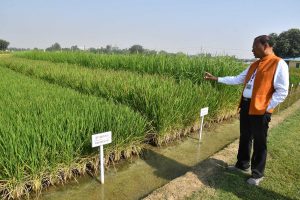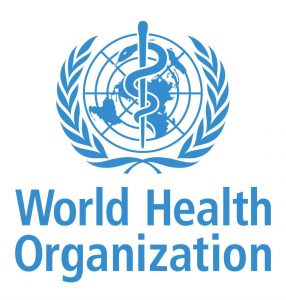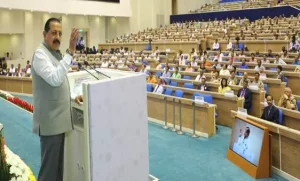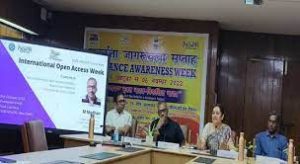Today Current Affairs: 1st November 2022 for UPSC IAS exams, State PSC exams, SSC CGL, State SSC, RRB, Railways, Banking Exam & IBPS, etc
Table of Contents
Global Climate Observing System (GCOS) Conference:

Experts from the Global Climate Observing System (GCOS) conference have observed that the Climate observing system remains fragile and needs financing for strengthening and sustaining it.
- GCOS conference was hosted by Exploitation of Meteorological Satellites (EUMETSAT).
- The Global Climate Observing System was established in 1992 as an outcome of the Second World Climate Conference.
- Objectives Is to ensure that the observations and information needed to address climate-related issues are obtained and made available to all potential users.
- The Global Climate Observing System (GCOS) is co-sponsored by the World Meteorological Organization (WMO), the Intergovernmental Oceanographic Commission of the United Nations Educational, Scientific and Cultural Organization (IOC-UNESCO), the United Nations Environment Programme (UN Environment), and the International Science Council (ISC).
- It regularly assesses the status of global climate observations of the atmosphere, land and ocean and produces guidance for its improvement.
Saras Food Festival, 2022:

Saras Food Festival, 2022 has been organized in New Delhi to promote ethnic and home-made handicrafts, paintings, toys, etc., prepared by women of Self-Help Groups (SHGs).
- Saras Food Festival is an initiative of the Union Ministry of Rural Development as an effort to empower women on a large scale.
- Women from self-help groups, formed under the flagship program ‘National Rural Livelihoods Mission’ of the Union Ministry of Rural Development are participating in this festival.
- This event will give women SHGs an opportunity to showcase their skills in the field of food making and introduce people to the food culture of our country.
- These SHG women are proficient in making rural products and preparing traditional dishes of their states.
- The Ministry also launched the e-commerce portal for better and more effective marketing of Saras products prepared by women of self-help groups.
- There are about 8 crore 62 lakh women who are members of SHGs and they have presence in 97% of Blocks, while 85 % of them are directly connected with the network of the Ministry.
- Efforts are on to have at least 25% of all sales by women self-help groups through e-commerce portals annually.
- The Ministry will take steps to establish Saras stalls by women SHGs in all State capitals, major cities and metros, airports and railway stations for widening the reach of marketing.
Pasumpon Muthuramalinga Thevar:

Prime Minister Narendra Modi paid tributes to the freedom fighter — Pasumpon Muthuramalinga Thevar — on the occasion of his guru pooja.
Pasumpon Muthuramalinga Thevar:
- Born on October 30, 1908, in Pasumpon in the Ramanathapuram district of Tamil Nadu, he was a freedom-fighter cum spiritual leader and was seen as a deity among the Mukulathor community.
- He did not accept traditional Hinduism because it supported the ‘Varnashrama’.
- He regularly fought against the evils of the Hindu religion.
- He became a full-time member of the Congress party and attended the 1927 Congress session at Madras as a volunteer when he was just 19.
- He became a close aide of Netaji Subhas Chandra Bose.
- He was elected three times to the national parliamentary constituency of the All India Forward Bloc.
- He supported the temple entry movement and he helped the activist Vaidyanatha Iyer take Dalits to Meenakshi Temple in Madurai.
- He was instrumental in getting the Criminal Tribes act repealed after continuous efforts in 1946.
Two New Dwarf Varieties Of Kalanamak Rice:

Indian Agriculture Research Institute (IARI) successfully tested two new dwarf varieties of Kalanamak rice i.e., Pusa Narendra Kalanamak 1638 and Pusa Narendra Kalanamak 1652 in Uttar Pradesh that give double the yield.
- This will address the problem of lodging responsible for low yield seen across the traditional variety.
- Kalanamak is a traditional variety of paddy with a black husk and a strong fragrance.
- It is considered a ‘gift from Lord Buddha’ to the people of the Sravasti when he visited the region after enlightenment.
- It has been awarded under ‘One District One Product’ (ODOP) scheme as an ODOP product of Siddharthnagar which is an aspirational district located in Terai belt of Uttar Pradesh.
- It is grown in 11 districts of the Terai region of northeastern Uttar Pradesh and in Nepal.
- It is protected under the Geographical Indication (GI) tag system.
- Kala Namak rice is grown mainly without using fertiliser or pesticide residues, making it perfect for crop production.
- Since pesticides and fertilisers are not used, the expense is lowered and the grower saves a lot of money.
- Kala Namak rice acts as an antioxidant like anthocyanin, which assists in the prevention of cardiovascular disease and the advancement of skincare.
- Kalanamak rice includes a lot of micronutrients like zinc and iron. As a result, eating this rice is also said to protect against illness caused by zinc and iron deficits.
- It is claimed that eating Kalanamak rice on a regular basis can help prevent Alzheimer’s disease.
- Kala Namak rice can also help strengthen, regrow, and galvanise the body, as well as help regulate blood pressure, diabetes, and skin damage.
List Of Fungal Infections : WHO

The World Health Organisation released the first-ever list of fungal infections (Priority Pathogens) that can be a threat to public health.
- Fungal priority pathogens list (FPPL) includes 19 fungi that represent the greatest threat to human health.
- The list takes precedence from the bacterial priority pathogens list, first established by WHO in 2017 with a similar focus to galvanise global attention and action.
- It aims to focus and drive further research and policy interventions to strengthen the global response to fungal infections and antifungal resistance.
- The classification is based on the pathogen’s public health impact or emerging antifungal resistance risk.
- Critical Priority Group: It includes Candida auris, which is a highly drug-resistant fungi, Cryptococcus neoformans, Aspergillus fumigatus, and Candida albicans.
- High Priority Group: It includes a number of other fungi from the Candida family as well as others such as Mucorales, a group containing “black fungus”, an infection which rose rapidly in seriously ill people, particularly in India, during Covid-19.
- Medium Priority Group: It includes a number of other fungi, including Coccidioides spp and Cryptococcus gattii.
Birth Anniversary Of Sardar Vallabhbhai Patel:

On National Unity Day 2022, the Union Home Minister of India remembered Sardar Vallabhbhai Patel on his 147th birth anniversary saying that the latter realised the dream of a strong and united India with his farsightedness.
- National Unity Day is celebrated every year on 31st October to commemorate the birth anniversary of Sardar Vallabhbhai Patel.
- It is also known as Rashtriya Ekta Diwas.
- The reason behind the celebration of this day is to make people aware of the ideas of staying together and uplifting society.
- It was celebrated for the first time in 2014.
- Several events are organised on this day like ‘Run For Unity’ – a nationwide marathon to increase awareness about the contribution of Sardar Patel to national integrity, National Unity pledge, etc.
- In 2018, the Government of India unveiled the ‘Statue of Unity’ in Gujarat to mark the 143rd birth anniversary of Sardar Patel.
Sardar Vallabhbhai Patel:
- He was born on 31st October 1875 in Nadiad, Gujarat.
- Sardar Patel was the first Home Minister and Deputy Prime Minister of India.
- He is recognized as the real unifier of India for his colossal contribution to integrate and make India a united (Ek Bharat) and an independent nation.
- He requested the people of India to live together by uniting in order to create Shresth Bharat (Foremost India).
- This ideology is still reflected in the Atmanirbhar Bharat initiative which seeks to make India Self-Reliant.
- He is also remembered as the ‘Patron saint of India’s civil servants’ as he established the modern all-India services system.
Amendments To The IT Rules, 2021:

Government notified amendments to the Information Technology (Intermediary Guidelines and Digital Media Ethics Code) Rules 2021.
- These are aimed at making internet-open, safe & trusted and accountable, for the digital nagriks of the country.
Key Amendments to IT Rules, 2021:
- New Guidelines for Social Media Intermediaries:
- Currently, intermediaries are only required to inform users about not uploading certain categories of harmful/unlawful content.
- These amendments impose a legal obligation on intermediaries to take reasonable efforts to prevent users from uploading such content.
- The new provision will ensure that the intermediary’s obligation is not a mere formality.
- The amendment requires intermediaries to respect the rights guaranteed to users under the Articles 14, 19 and 21 of the Indian Constitution, therefore, including a reasonable expectation of due diligence, privacy and transparency.
- For effective communication of the rules and regulations of the intermediary, it is important that the communication is done in regional Indian languages as well.
- Amendments to the Rule 3:
- The grounds in subclause 1 of rule 3 (rule 3(1)(b)(ii)) have been rationalized by removing the words ‘defamatory’ and ‘libellous’.
- Whether any content is defamatory or libellous will be determined through judicial review.
- Some of the content categories in subclause 1 of rule 3 (rule 3(1)(b)) have been rephrased to deal particularly with misinformation, and content that could incite violence between different religious/caste groups.
- Establishment of Grievance Appellate Committee(s):
- Grievance Appellate Committee(s) will be established to allow users to appeal against the inaction of, or decisions taken by intermediaries on user complaints.
- However, users will always have the right to approach courts for any remedy.
Special Operation Medal:

Union Home Minister’s “Special Operation Medal” for the year 2022 awarded for 4 Special Operations.
- Have high degree of planning, high significance for the security of the country/State/UT and have significant impact on the security of larger sections of the society.
- The award shall be conferred for Special Operation in the areas such as counter terrorism, border action, arms control, prevention of narcotics smuggling and rescue operations.
- All recommendations for the award is sent to the MHA within three months of the special operation.
- It is announced on 31st of October every year.
- In a year, normally 3 Special Operations are considered for the award and in extra ordinary circumstances; the award may be given up to 5 Special Operations to encourage State/UT Police.
HARIT Aaykar Initiative:

HARIT Aaykar initiative recently launched by Income Tax Department for increasing greenery and creating micro forests
- It was launched on the occasion of National Unity Day to increase greenery and create micro forests.
- Under this initiative, the Income Tax Department resolves to increase the green cover by planting trees and creating micro-forests in and around Income Tax Department’s buildings and other public areas.
- A micro-forest is a small, planted forest that maximises tree density and biodiversity.
- The Miyawaki method, which was devised by Japanese botanist Akira Miyawaki in the 1980s, is a technique to create micro forests over small plots of land.
- Achieving this goal requires planting a wide variety of plants in a fairly dense manner so that the plot of land has different layers of a forest such as shrubs and canopies and not just trees.
- Plants typically require anywhere between eight to nine months of care before reaching a point where the micro forest becomes self-sustaining.
India Chem 2022:

Union Minister of Health & Family Welfare and Chemicals & Fertilizers will inaugurate the India Chem 2022 on 2nd November 2022.
- Theme: “Vision 2030: Chemicals and Petrochemicals Build India”.
- India Chem 2022 will showcase the Government’s policy for sustainable growth in the sector and provide a platform for national and international players to interact, exchange knowledge and forge alliances.
- The event will also highlight the investment opportunities especially in Petroleum, Chemical and Petrochemical Investment Regions (PCPIRs) and focus on the “Make in India” initiative for making the country Atmanirbhar in sector.
- India Chem, the flagship event of the Department, is one of the largest composite events of the industry in the Asia-Pacific region and this comprises of an International Conference and Exhibition.
- Department is organizing the 12th edition of INDIA CHEMin association with the Federation of Indian Chambers of Commerce and Industry (FICCI).
Indian Chemicals and Petrochemicals industry:
- The Indian Chemicals and Petrochemicals industry is the backbone of the Indian economy and plays a vital role in the growth of various key sectors like automotive, construction, electronics, health care, textiles and FMCG.
- Export of Indian Chemicals has registered an overwhelming growth of 106% in 2021-22 over 2013-14.
- India’s export of chemicals for 2021-22 has hit a record at US$ 29,296 Million, whereas in 2013-14, India’s chemical export was US$ 14,210 Million.
International Open Access Week-2022:

CSIR-NIScPR recently celebrated “International Open Access Week-2022”.
- International Open Access Week is celebrated worldwide to create awareness about the open access scholarly publishing among researchers and publishers.
- It is celebrated globally during the last full week of October.
- International Open Access Week is organized by SPARC in partnership with the Open Access Week Advisory Committee.
- It was founded in 2008 by SPARC and partners in the student community.
- This year’s theme seeks to encourage connection and collaboration among the climate movement and the international open community.
CSIR-NIScPR:
- CSIR-National Institute of Science Communication and Policy Research (CSIR-NIScPR) has been formed following the merger of CSIR-NISCAIR & CSIR-NISTADS
- CSIR-NIScPR is the one of largest Open Access publishers of India which publishes 15 Diamond Open Access scholarly journals.
- CSIR-NIScPR neither charges any publication fee to authors nor any subscription fee to the readers.




